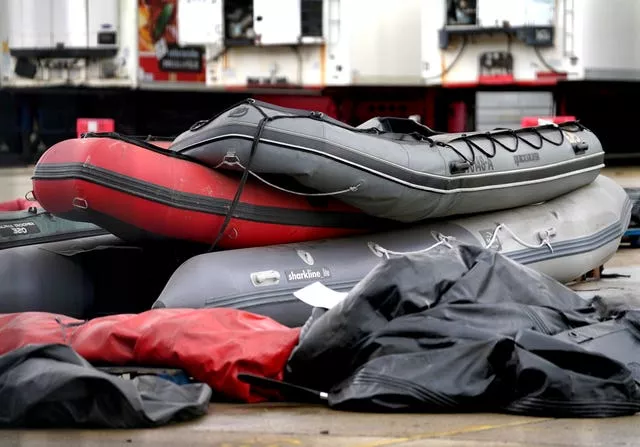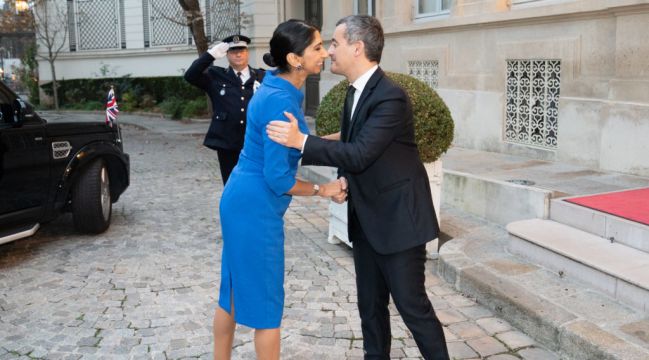British immigration officers will be stationed in French control rooms for the first time after the UK government signed a new multi-million pound deal with France in a bid to curb Channel crossings.
The latest UK-France agreement aimed at tackling the migrant crisis, signed as the number of people arriving on the south coast after making the journey topped 40,000 for the year so far, will also see a 40 per cent boost in the number of officers patrolling beaches in northern France.
Further measures signed off in Paris on Monday morning by Home Secretary Suella Braverman and French interior minister Gerald Darmanin include drones and night vision equipment to help officers detect crossings, as well as stepping up surveillance around ports to prevent migrants entering the UK in lorries, with more CCTV and sniffer dogs.
The fresh agreement means the cost paid by the UK to France will rise to 72 million euros (£63 million) a year, Rishi Sunak told reporters travelling with him to Indonesia for the G20 summit.

Prime Minister Rishi Sunak said the move would contribute to his efforts to “grip illegal migration”, and that he was “confident” numbers would come down over time.
Mr Sunak added that he had spent more time working on the issue than any other, except the autumn statement, since entering No 10.
A new taskforce will be established to address the “recent rise in Albanians and organised crime groups exploiting illegal migration routes” into Western Europe and the UK, No 10 said.
Meanwhile, Britain and France also pledged to ramp up co-operation on the matter, with a meeting of the “Calais Group” of neighbouring countries to be scheduled as soon as possible.
The deal also sees the two countries promise to share more intelligence and for investment in French reception and removal centres for migrants prevented from crossing to the UK.

Downing Street said the increase in beach patrols in northern France would “increase early detection”, while the presence of UK staff in French control rooms would boost understanding of the “threat” at hand and help inform deployments.
But Enver Solomon, chief executive of the Refugee Council, claimed the deal fails to address the factors behind people choosing to put themselves at risk trying to reach Britain the first place – and will therefore “do little to end the crossings”.
He called for a focus on creating more “safe routes” and working with the EU and other countries to “share responsibility” for the “global challenge”, while urging the Government to do “far more” to reduce the backlogs in the current asylum system.
“The Government must take a more comprehensive approach and create an orderly, fair and humane asylum system that recognises that the vast majority of those taking dangerous journey are refugees escaping for their lives,” he said.
“It needs to face up to the fact it is a global issue which will not be resolved by enforcement measures alone.”







